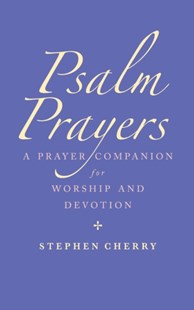What follows is an extract from a sermon preached in King’s College Chapel, Cambridge on Sunday 15th October 2023. You can listen to the full sermon here https://soundcloud.com/kingscollegechoir/there-is-such-religion-as-dehumanisation?si=d767841a8ce64455b9ed24113ba3f16d&utm_source=clipboard&utm_medium=text&utm_campaign=social_sharing
The question of what divides us, how we relate to those we face, is one of the most fundamental in human psychology, politics and history. And nowhere has the drama, passion and suffering that goes on around and across boundaries been more painfully or consequentially played out than in the Middle East. When on October 7th hundreds of men, full of hatred and violent intent, flooded out of Gaza to kill, maim, humiliate and capture Israelis, it was one of the most appalling crossings of a line that anyone can recall, both literally and metaphorically. That action immediately galvanized a reaction, and for the last week we have been living through the horrors which could not be imagined were it not for the location and nature of political and human dividing lines.
What has happened recently is terrible. What is happening now is terrible. And there is yet more to come which will be terrible. The questions for us are how to understand, how to respond, how to think of it, how to speak of it and what to do. It is extremely difficult, and I don’t feel that there is a great deal that I can say that could be useful except the following.
First, that clearly drawn lines that make binary oppositions are the problem not the solution. Anyone who wants to think or speak or act helpfully needs to get beyond ‘barrier thinking’. Second, it is only if we do this that we can calm the dynamics of retribution which invariably lead to uncontrollable spirals of violence. Third, it is only if we free ourselves from binary loyalties that we can recognise that all abuses of power and violations of human rights should be condemned.
There are lines that it is right to defend. But what are those lines? They are not, I’d say, the lines drawn between people, but the lines drawn around people for their sake. Every human being deserves and needs the protection and respect of all other human beings. No one should be subject to sudden attack or to sustained oppression. If religion, if God, if monotheism, is to be a force for good, it must take the form of encouraging and facilitating the mutual respect and regard of one person for another, whatever differences are apparent, integral, inherited, acquired, or assumed.
Ours is the era when talk of human rights has been most prominent, but also the era in which they have been most flagrantly relentlessly and publicly violated. The harm in the harm of what we are witnessing is the callous disregard of the dignity, needs and prospects of vulnerable human beings. The principal demon among the many demons creating havoc is the demon of dehumanisation, of disrespect, of disregard.
That is the demon that needs to be named and exorcised at this time in history. It is only when he has dominion that atrocities and war crimes are committed. Whatever we do we must not allow ourselves to worship the demon of dehumanization, the demon who says we can harm others in any way we like because they don’t really matter, they don’t count, they are not as worthwhile or important as we are. For when we worship and follow him we find ourselves being led as far as possible from the love of God and neighbour. The demon of dehumanization leads us into the bowels of hell.






